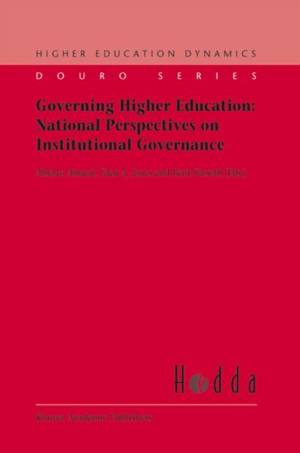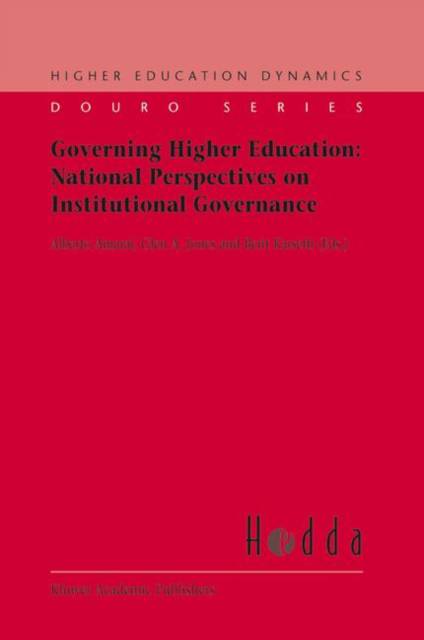
- Afhalen na 1 uur in een winkel met voorraad
- Gratis thuislevering in België vanaf € 30
- Ruim aanbod met 7 miljoen producten
- Afhalen na 1 uur in een winkel met voorraad
- Gratis thuislevering in België vanaf € 30
- Ruim aanbod met 7 miljoen producten
Zoeken
Governing Higher Education: National Perspectives on Institutional Governance
€ 223,95
+ 447 punten
Omschrijving
Over the last decades higher education has gone through an unprecedented growth period, and as a result the average university or college has now more students and a larger output than ever before. At the same time, the socio-economic and political demands with respect to higher education have grown dramatically. These developments have taken place without a proportional increase of the budgets and facilities of the higher education institutions. This has created an imbalance between the expectations with respect to higher education and the institutional capacities in the sector. One of the underlying trends is that the traditional pact between higher education and society has become problematic. Society no longer accepts the rather special and protected position that universities have had for a very long time in our societies. The knowledge-based social and cultural missions of higher education institutions are no longer taken for granted as the main legitimacy bases for public investments in higher education. Universities and colleges are at present expected to function efficiently, to contribute to sustainable economic growth at various levels, and to add to national and even supranational trade balances. On top of this they have to prove that they maintain a high level of quality in their primary activities, i. e. teaching, research and services, while adapting and responding to the expectations expressed so vehemently in their environments, and to a decreasing per capita funding basis.
Specificaties
Betrokkenen
- Uitgeverij:
Inhoud
- Aantal bladzijden:
- 299
- Taal:
- Engels
- Reeks:
- Reeksnummer:
- nr. 2
Eigenschappen
- Productcode (EAN):
- 9781402010781
- Verschijningsdatum:
- 31/12/2002
- Uitvoering:
- Hardcover
- Formaat:
- Genaaid
- Afmetingen:
- 163 mm x 242 mm
- Gewicht:
- 662 g

Alleen bij Standaard Boekhandel
+ 447 punten op je klantenkaart van Standaard Boekhandel
Beoordelingen
We publiceren alleen reviews die voldoen aan de voorwaarden voor reviews. Bekijk onze voorwaarden voor reviews.







